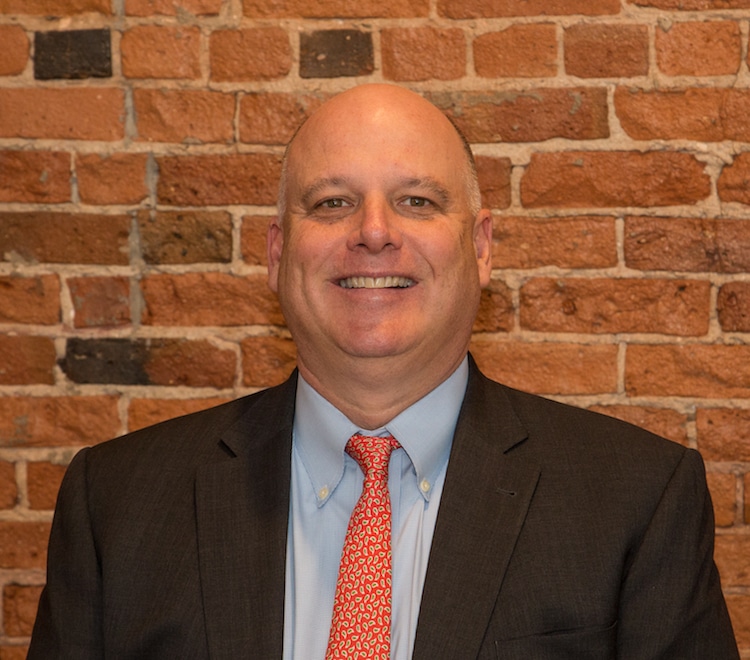When people think of financial foundations, they often imagine budgeting tools or basic saving tips. But for high-net-worth individuals, financial foundations take on a different meaning—one that focuses less on starting from scratch and more on fortifying what’s already been built. At Winthrop Partners, we believe that even individuals with significant assets benefit from regularly revisiting the core components of a sound financial strategy.

In this post, we’ll walk through five core areas that form the backbone of long-term financial success: clarity of goals, risk management, tax-aware investing, legacy planning, and the value of trusted advice.
- Define Your Financial Purpose
It’s easy to focus on portfolio performance or market trends. But before strategy comes purpose. Why are you building and preserving wealth? What does financial success look like—not just in numbers, but in your life?
High-net-worth individuals often face complex questions that go beyond “Can I retire?” These include:
- How can I support future generations responsibly?
- What role should philanthropy play in my plan?
- How do I maintain flexibility without sacrificing security?
Having clear goals helps shape every other financial decision. Whether it’s purchasing property, planning a business exit, or leaving a legacy, the starting point should always be intentionality. Wealth without direction can quickly become reactive instead of strategic.
- Strengthen Your Risk Management Strategy
We often think of risk in terms of the market, but true financial stability depends on understanding all forms of risk: investment, liquidity, personal, and even behavioral.
For high-net-worth individuals, risks can include:
- Overconcentration in company stock or one asset class
- Exposure through private business ownership
- Lack of insurance alignment with net worth
- Portfolio decisions based on emotional market responses
Risk management doesn’t mean eliminating risk—it means understanding it and building strategies around it. This may involve rebalancing portfolios, implementing umbrella liability coverage, creating trusts, or planning for business continuity.
The stronger the foundation, the more resilient your financial plan becomes when unexpected events occur.

- Invest with Tax Efficiency in Mind
Wealth accumulation and wealth preservation are two different things. Once you’ve reached a certain level of assets, taxes can become one of the largest ongoing expenses you face. That’s why we focus on tax-aware investing—not just tax prep at year-end.
Here are a few principles to consider:
- Asset Location: Placing tax-efficient assets (like ETFs) in taxable accounts and tax-inefficient assets (like bonds or REITs) in tax-deferred accounts.
- Tax-Loss Harvesting: Using market dips to reduce taxable gains elsewhere in your portfolio.
- Roth Conversions: Strategic conversions during low-income years or before RMDs kick in can create long-term tax advantages.
- Gifting and Charitable Strategies: Donor-advised funds, qualified charitable distributions (QCDs), or appreciated asset donations can align giving goals with tax benefits.
The goal isn’t to avoid taxes—it’s to be proactive and strategic about when and how you pay them.
- Build a Legacy Plan that Reflects Your Values
Legacy planning is about more than wills and trusts. It’s about ensuring that your wealth transfers according to your wishes and that your values are reflected in the process.
For some, that means creating family foundations or establishing structured giving. For others, it means preparing the next generation to be good stewards of wealth through education and gradual ownership.
Important elements of a strong legacy plan include:
- A current and coordinated estate plan
- Clearly communicated intentions among heirs
- Thoughtful trust structures to manage complexity or reduce estate taxes
- Integration with your financial and investment plans to maintain consistency
Too often, individuals delay legacy planning because it feels overwhelming or emotionally difficult. But proactive planning is the only way to ensure your vision is carried out the way you intend.
- Work with an Advisor Who Puts Your Interests First
One of the most important parts of any financial foundation is the relationship you have with your advisor. Not all advisors operate under the same standard of care. At Winthrop Partners, we work under a fiduciary standard, which means we are legally obligated to act in your best interest at all times.
We don’t sell products. We don’t earn commissions. We don’t push trends.
Instead, we offer:
- Unbiased guidance backed by data and long-term strategy
- Personalized planning aligned with your goals and life stage
- Transparent fees so you always know what you’re paying for
- Regular check-ins to update your plan as your life evolves
A strong advisor relationship isn’t about flashy market predictions—it’s about thoughtful planning, ongoing conversations, and deep trust.

Putting It All Together
Building and preserving wealth doesn’t happen through a single decision—it happens through a coordinated, values-based approach that adapts over time. And just like any well-built structure, the quality of the foundation determines how well it weathers uncertainty.
Whether you’re decades into your wealth journey or preparing for a major life transition, revisiting the fundamentals can offer clarity and renewed confidence. And if you haven’t looked closely at these core areas in a while, now may be the right time.
At Winthrop Partners, we help individuals and families navigate the complexities of wealth with clarity, purpose, and care. If you’re ready to revisit your financial foundation, we’re here to have that conversation.
Interested in reviewing your financial plan?
Contact us today to schedule a conversation: winthroppartners.com/contact

Thomas Saunders is the Managing Partner of Winthrop Partners. Prior to founding Winthrop Partners, Tom was Senior Vice President at what is now JP Morgan. His career includes senior and executive roles at Brown Brothers Harriman and First Niagara Bank, a top 25 Bank. Click here to contact Thomas Saunders about your investment and planning requirements.

